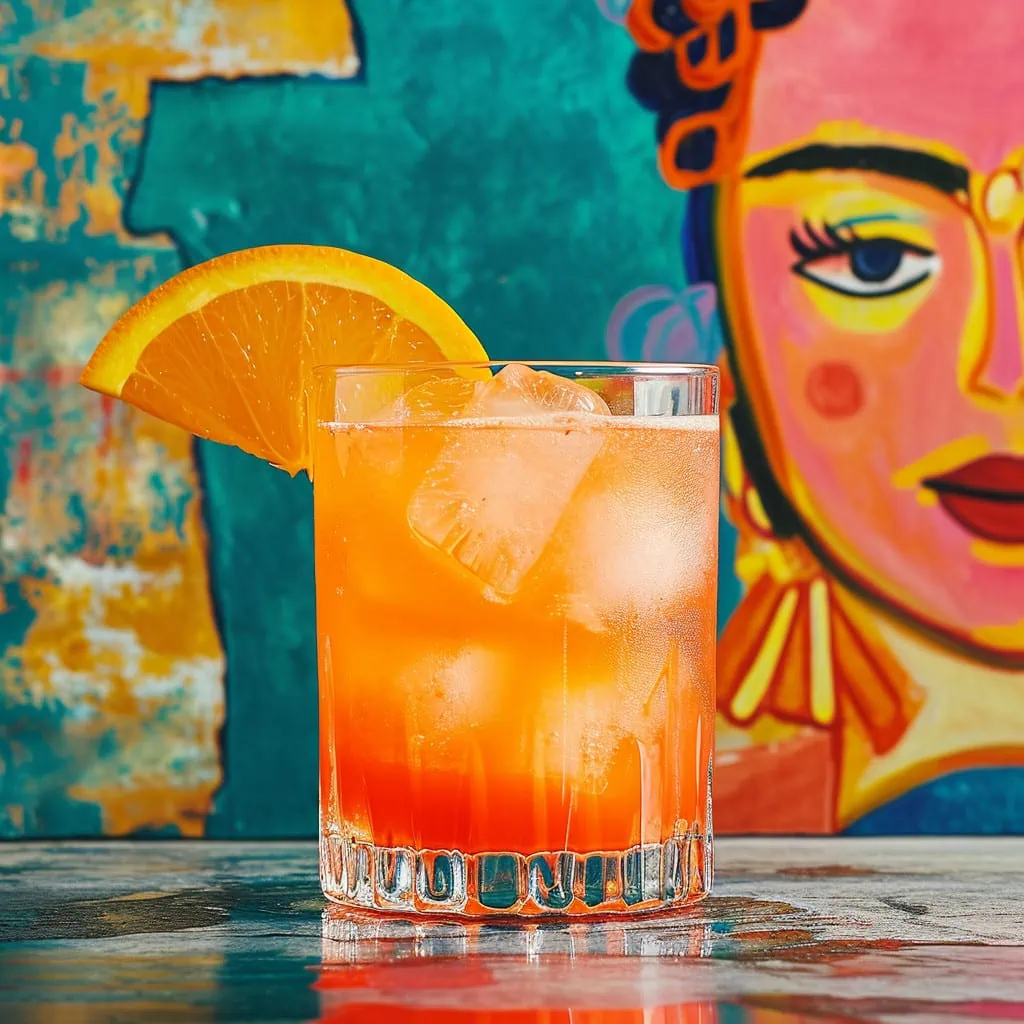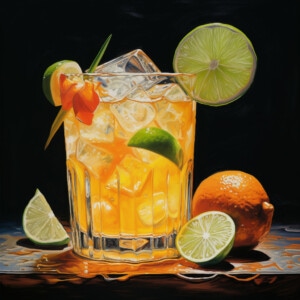
Bacanora Sunrise
What is bacanora ?
Bacanora is a traditional Mexican alcoholic beverage, specifically a type of mezcal, that has a history dating back many years. It is produced in the state of Sonora, Mexico. While there might not be a single universal legend associated with Bacanora, the production and consumption of this spirit are deeply rooted in the region’s culture.
Bacanora is typically made from the agave plant, specifically the Agave angustifolia Haw, also known as Agave pacifica. The legend of Bacanora often revolves around the traditional methods of harvesting and preparing the agave, as well as the mystical or cultural significance of the plant itself.
One common aspect in the production of Bacanora is the “roasting” or baking of the agave hearts (piñas) in earthen pits. The process of extracting the fermented juice and distilling it has been passed down through generations, with families often having their own unique methods and recipes.
It’s important to note that mezcal, including Bacanora, has seen a resurgence in popularity, both in Mexico and internationally. The traditions and legends associated with its production are part of what makes these spirits culturally significant. If you’re interested in specific stories or details, it could be helpful to consult local sources or visit the region where Bacanora is produced to get a firsthand account of the legends surrounding this traditional Mexican spirit.
.
Do you know if bacanora was used in religious ceremonies ?
While there isn’t extensive historical documentation on the religious use of Bacanora specifically, traditional agave spirits, including those similar to Bacanora, have been used in various rituals and ceremonies by indigenous communities in Mexico. Mezcal, in general, has cultural and symbolic significance in many Mesoamerican societies, often associated with religious practices and spiritual rituals.
The agave plant itself holds cultural and spiritual importance for some indigenous groups in Mexico. Its cultivation, harvest, and transformation into spirits are sometimes accompanied by rituals that honor the agave plant and express gratitude for its role in providing sustenance and the basis for alcoholic beverages.
In some cases, fermented agave beverages have been used in ceremonies as an offering to deities or as part of traditional celebrations. The specific rituals and practices can vary among different indigenous communities and regions.
It’s essential to note that the use of agave spirits in religious or cultural ceremonies is deeply tied to the traditions of specific communities, and practices can differ across regions and indigenous groups. If you are interested in a particular aspect of Bacanora’s history or its connection to religious ceremonies, it might be helpful to consult local sources, anthropological studies, or experts who specialize in the culture and traditions of the region where Bacanora is produced.
Bacanora’s history ?
Bacanora is a traditional Mexican distilled spirit, specifically a type of mezcal, that originates from the state of Sonora, Mexico. Its history is deeply rooted in the culture and traditions of the region. Here’s an overview of Bacanora’s history:
- Indigenous Origins:The production of agave spirits, including Bacanora, has ancient roots in Mexico. Indigenous communities in the Sonora region were likely making fermented beverages from agave plants long before the arrival of the Spanish.
- Spanish Influence:The introduction of distillation techniques by Spanish colonizers in the 17th century had a significant impact on the production of agave spirits in Mexico. The distilled spirits derived from agave gained popularity and became an integral part of the local culture.
- Bacanora’s Distinctiveness:Bacanora specifically hails from the mountainous regions of Sonora. It is typically made from Agave angustifolia Haw, commonly known as Agave pacifica. What sets Bacanora apart from other agave spirits is its unique production methods, including the roasting of agave hearts in earthen pits and traditional distillation.
- Prohibition and Resurgence:In the early 20th century, the Mexican government imposed restrictions on the production of many traditional spirits, including Bacanora, due to concerns about unregulated production and potential health risks. This led to the spirit going underground, with many producers continuing to make Bacanora clandestinely.
In recent years, there has been a resurgence of interest in traditional and artisanal agave spirits. Bacanora has emerged from the shadows, and efforts have been made to regulate and promote its production legally.
- Recognition and Denomination of Origin:In 2000, Bacanora received recognition as a distinctive alcoholic beverage, and in 2005, it was granted Denomination of Origin status. This recognition establishes specific geographical boundaries and production standards for Bacanora, ensuring that only spirits produced in the designated region can bear the name.
Today, Bacanora is gaining popularity both within Mexico and internationally. Its unique flavor profile, tied to the agave species used and the traditional production methods, contributes to its appeal among enthusiasts of agave spirits. The history of Bacanora reflects a blend of indigenous traditions, Spanish influences, and contemporary efforts to preserve and promote this distinctive mezcal.
News
Stay tuned and discover all the news in the Spirits World for professionals and amateurs, by our Spirits Hunters’ experts.
See all posts in this category. Join the community on Reddit
Join the community on Reddit
Spirits Hunters is a community dedicated to spirits and the world of mixology. Feel free to talk about the world of mixology and bartending here!
Join







